Future of Digital Marketing In the 2024
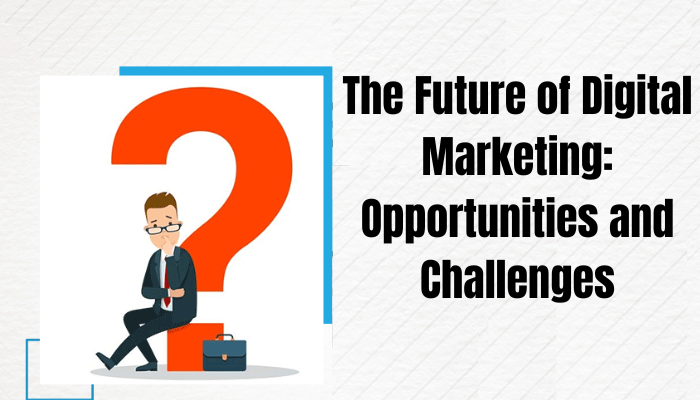
Digital marketing has become an essential part of the marketing landscape, with businesses of all sizes investing in this area to reach their target audiences and grow their brand. In this article, we'll answer five of the most asked questions about digital marketing.
What is Digital Marketing and why is it important?
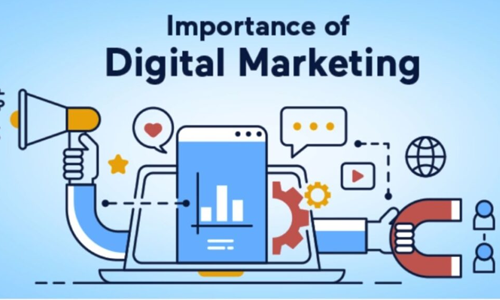
Digital marketing refers to the promotion of products or services using digital channels such as search engines, social media, email, and websites. The purpose of digital marketing is to reach and engage with a targeted audience, convert them into customers, and ultimately drive business growth.
Digital marketing has become increasingly important due to the widespread adoption of digital devices and the internet. People are spending more time online, and businesses need to adapt their marketing strategies to reach them where they are. Digital marketing allows businesses to target specific audiences with tailored messages, track the effectiveness of their campaigns, and make data-driven decisions to improve their ROI.
Can digital marketing make you rich and is it a good career?
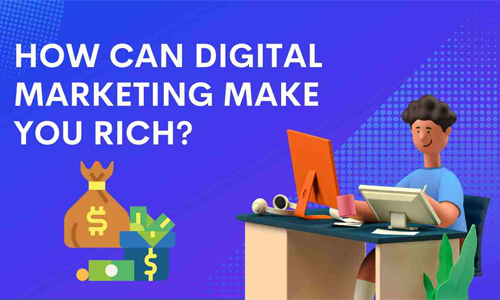
While digital marketing can lead to financial success, it is not a get-rich-quick scheme. Like any other profession, success in digital marketing requires hard work, dedication, and ongoing learning.
That being said, digital marketing can be a rewarding career with many opportunities for growth and advancement. As businesses continue to invest in digital marketing, the demand for skilled professionals in this field is expected to grow. A career in digital marketing can lead to a range of job opportunities such as digital marketing manager, social media manager, SEO specialist, content marketer, and more.
What digital marketing skills are in demand and which course is best for beginners?
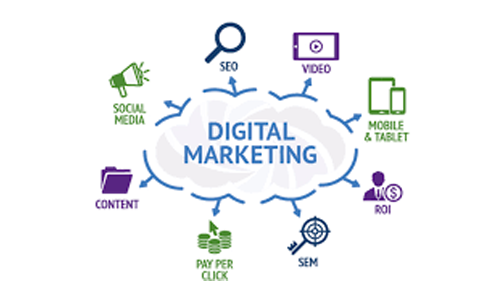
The digital marketing industry is constantly evolving, and there are always new skills and technologies to learn. However, some of the most in-demand skills in digital marketing include:
- Search engine optimization (SEO)
- Pay-per-click (PPC) advertising
- Social media marketing
- Content marketing
- Email marketing
- Analytics and data analysis
For beginners, it's best to start with a comprehensive course that covers the basics of digital marketing. There are many courses available online, ranging from free introductory courses to paid, in-depth programs. Some popular courses for beginners include:
- DAAC
- Hubspot Academy
- Udemy Digital Marketing Course
- Coursera Digital Marketing Course
- LinkedIn Learning Digital Marketing Course
How does digital marketing work and how is it different from traditional marketing?
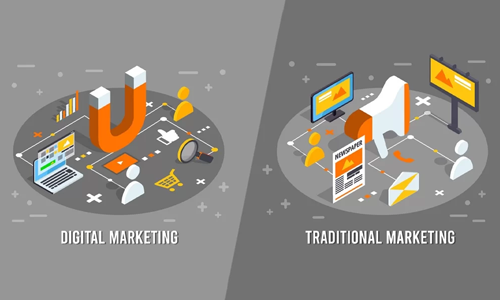
Digital marketing differs from traditional marketing in that it uses digital channels to reach and engage with a targeted audience. Traditional marketing relies on mediums such as print, radio, and television to promote products or services to a wider audience.
Digital marketing works by using digital channels such as search engines, social media, email, and websites to reach specific audiences with tailored messages. This allows businesses to target their marketing efforts more precisely and measure the effectiveness of their campaigns in real-time.
Will digital marketing continue to grow and will it be automated or replaced by AI?
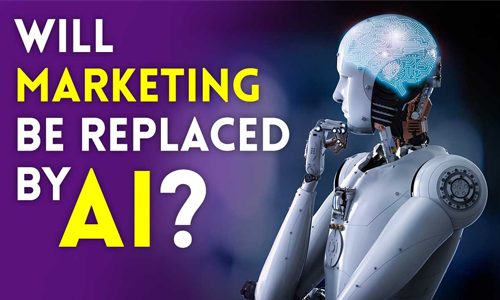
There's no doubt that digital marketing will continue to grow and evolve as new technologies and channels emerge. Automation and AI are already being used in some areas of digital marketing such as chatbots, automated email campaigns, and programmatic advertising. However, it's unlikely that digital marketing will be fully replaced by AI as human creativity and strategic thinking are still essential in crafting effective digital marketing campaigns.
In conclusion, digital marketing is a crucial component of modern-day marketing strategies, and businesses need to adapt to this ever-changing landscape to remain competitive. Whether you're a beginner or an experienced marketer, there are many opportunities to learn and grow in this field, and the future looks bright for digital marketing professionals.
In 2024, digital marketing continues to evolve rapidly, driven by advancements in technology, shifts in consumer behavior, and changes in the regulatory landscape.
Here are some key trends shaping the future of digital marketing:
AI and Machine Learning: AI-powered tools are increasingly being used to personalize marketing messages, predict consumer behavior, optimize ad campaigns, and automate routine tasks. Machine learning algorithms enable marketers to analyze large datasets and gain valuable insights to enhance targeting and engagement.
Voice Search Optimization: With the growing popularity of voice-enabled devices like smart speakers and virtual assistants, optimizing content for voice search becomes crucial. Marketers are focusing on creating conversational and natural language content to improve visibility in voice search results.
Augmented Reality (AR) and Virtual Reality (VR): AR and VR technologies are transforming the way brands interact with consumers. Marketers are leveraging these immersive technologies to create engaging experiences, allowing customers to visualize products, try virtual samples, and participate in interactive campaigns.
Video Marketing Dominance: Video content continues to dominate digital marketing strategies. Short-form videos, live streaming, and interactive video ads are gaining traction across social media platforms. Brands are investing in high-quality video production to capture audience attention and drive engagement.
Data Privacy and Compliance: Stricter data privacy regulations, such as GDPR and CCPA, are reshaping digital marketing practices. Marketers are prioritizing consumer consent, data security, and transparency in their strategies to comply with regulations and build trust with customers.
Influencer Marketing Evolution: Influencer marketing remains a powerful strategy for reaching targeted audiences, but it's evolving beyond just sponsored content. Authenticity, relevance, and long-term partnerships are becoming more important as consumers seek genuine connections with influencers.
Ephemeral Content and Stories: The popularity of ephemeral content, such as Instagram Stories and Snapchat Snaps, continues to rise. Marketers are leveraging these short-lived, immersive formats to deliver real-time updates, behind-the-scenes content, and exclusive offers to audiences.
Hyper-Personalization: Consumers expect personalized experiences across all touchpoints, and marketers are leveraging data-driven insights to deliver hyper-personalized content and offers. Dynamic content, predictive analytics, and AI-driven recommendations enable brands to tailor messaging to individual preferences and behaviors.
Multi-Channel Integration: Marketers are adopting a multi-channel approach to reach consumers across various platforms and devices. Integrated campaigns that span social media, email, search, and mobile channels allow brands to maintain consistent messaging and optimize customer engagement throughout the buyer journey.
Sustainability and Purpose-Driven Marketing: Consumers are increasingly conscious of environmental and social issues, and they expect brands to align with their values. Purpose-driven marketing initiatives that support sustainability, diversity, and social responsibility resonate with conscious consumers and contribute to brand loyalty.
Conclusion
, the landscape of digital marketing in 2024 is shaped by technological advancements, changing consumer behaviors, and regulatory developments. Marketers are embracing AI, AR, VR, and other innovative technologies to create personalized, immersive experiences for consumers. The rise of voice search, video content, and influencer marketing underscores the importance of engaging audiences across multiple channels. However, marketers must also navigate evolving data privacy regulations and prioritize transparency and trust to build lasting relationships with consumers.

